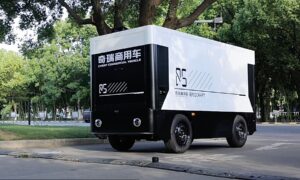In 2019, about 31 million Americans (9.8 percent of the population) moved homes, according to the US Census data. As 2019 neared an end, experts predicted increased numbers for 2020—that is, before the advancement of COVID-19.
As governments worldwide tightened lockdown restrictions in a bid to curb the virus, those with plans to relocate in 2020 had to shelve pursuits, which negatively impacted the moving industry. However, thanks to vigilant medical personnel, the COVID-19 vaccine has arrived. As a result, struggling industries have begun moving forward, including the relocation sector.
Regardless of whether you’re moving during a global pandemic or not, moving is rarely comfortable and easy. Saying goodbye to friends and familiar surroundings can be stress-inducing and saddening as you dive into the unknown, building new relationships, and adjusting to new routines. In addition to the emotional turmoil that often accompanies relocating, there are numerous physical plights you’ll have to face head-on.
Besides the long-winded processes involved in relocation, the physical moving day can be chaotic without a well-orchestrated plan in place. Between lost belongings, broken equipment, inadequate storage, tantrum-prone kids, and additional costs, you’ll need helping hands and a detailed itinerary to make it through the ins-and-outs of moving.
Luckily, moving industry executives have begun releasing state-of-the-art technology to streamline relocation processes, ultimately reducing stress and hassle on your part. Read on for five innovations shaping the moving industry.
The technological revolution of the auto transportation industry
A hassle for those moving long distances is auto transportation. While some drive their four-wheeled friend to their new destination, others relocating out of state or country often need to ship their vehicles. Previous shipping services were out-of-touch with innovative technology, offering sub-par tracking options and error-prone hardware. However, service providers like Guardian Auto Transport have begun implementing cloud-based services and real-time tracking, allowing clients and management teams to monitor progress closely.
Cloud-based services
Before the cloud technology, shipping companies would install costly hardware devices on shipping vessels, often requiring routine maintenance and ultimately eating up time and resources.
Now with cloud tech, shipping companies can manage their logistics with zero hardware. Placing cloud technology in the center of data management, shipping companies enjoy scalability, affordability, and real-time tracking, facilitating the issuance of instant instructions.
Cost estimation tools
Tech-savvy movers provide online cost estimations and quotes utilizing artificial intelligence. This way, clients can fill in specifications from the type of services and specific household goods to drop-off locations and international travel plans. After filling up the necessary details, customers and movers alike will receive instant cost estimations, allowing them to circumvent countless phone calls or inaccurate quotes.
Self-driving vehicles
While there is the talk of self-driving cars, moving trucks and freights are not far behind. Big-name tech companies, like Tesla, have begun making headway in the self-driving world, implementing technology on a larger scale. Tesla’s Semi uses an autopilot system to avoid collisions and is already in production, which means hands-free moving efforts are right around the corner.
Self-booking and client autonomy
Forward-thinking moving companies are working tirelessly to increase customer satisfaction and streamline accessible features. By implementing apps into daily operations, relocation services can improve customer relations, allowing instant access to tracking capabilities and critical logistical information. Through apps, customers can now book, modify, or cancel relocations with the click of a button.
Telematics
Operating a fleet can be a daunting task for even the most experienced movers. But with new-and-improved telematics, operators can enjoy an array of benefits, including:
- Safety tracking
- Vehicle tracking
- Vehicle maintenance management
- Insurance risk assessment
By improving telematics, implementing safety features, and upgrading tracking services, fleet operators can utilize their time efficiently and carry household belongings to their intended destination with minimal bumps in the road.
The bottom line
The moving industry has come a long way in recent years, thanks to innovative technological advancements. Companies have honed-in on customer satisfaction and increased accessibility, allowing clients to control and manage their needs more efficiently.



































